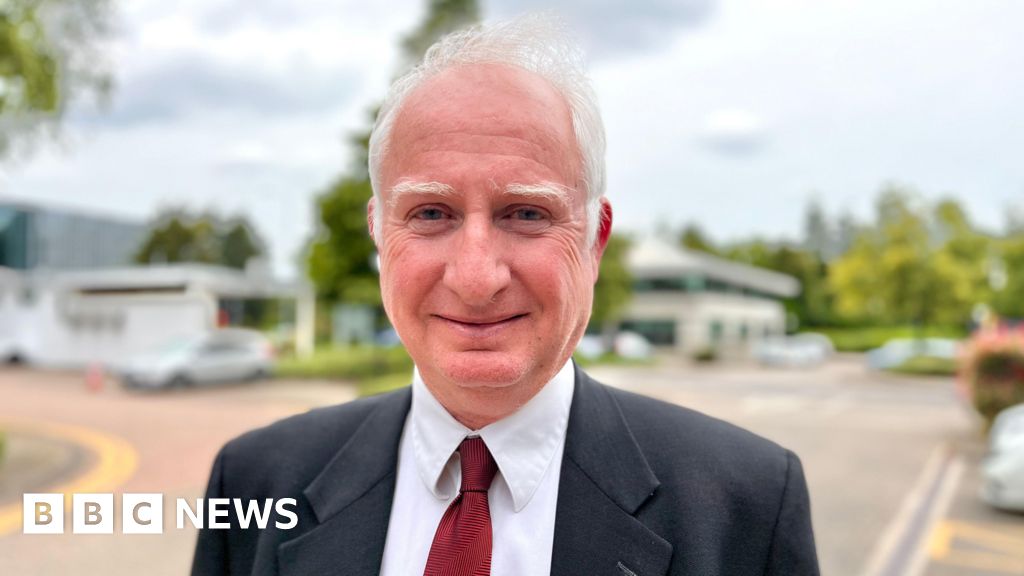ARTICLE AD BOX
Watch: Boris Johnson says he is at COP 27 in 'purely supportive role'
By Andre Rhoden-Paul
BBC News
Boris Johnson has said nations cannot "go weak and wobbly" on climate change targets, as he attended COP27 in Egypt.
Speaking in Sharm el-Sheikh, the ex-prime minister said the aim of reducing greenhouse gas emissions had suffered as result of the Ukraine war.
He also said he was glad UK PM Rishi Sunak was attending the summit, adding he was on "absolutely the right lines".
Mr Sunak, who reversed a decision not to go to COP27, will later call for a swift transition to renewable energy.
World leaders have gathered at the Red Sea resort for two weeks of talks on climate action.
Speaking at a New York Times event, Mr Johnson warned it was not the moment "to give in to Putin's energy blackmail".
"The reason I'm here is because I am worried that the discussion about Ukraine, about what's happening there, is having all sorts of bad effects," he said.
"It's making people anxious about net zero, it's making people anxious about whether we can really do it."
He continued: "I think that the risk is that some people will go weak and wobbly on net zero, we can't have that".
Mr Johnson warned "corrosive cynicism" had developed over net zero following the spike in oil and gas prices.
"People have drawn the conclusion that the whole project of net zero needs to be delayed, mothballed and put on ice - for instance we need to reopen coal-fired power stations and frack the hell out of the British countryside," he said, in an apparent dig at his successor Liz Truss.
"So I believe here at Sharm is a moment where we really have to tackle this nonsense head on."
Some Conservative MPs have called for a rethink of how the UK gets to net zero, with candidates in the summer's Tory leadership contest voicing concerns about the economic cost.
Ms Truss's government ended the ban on shale gas fracking before her resignation as prime minister. Her successor Mr Sunak has since reinstated the ban, a 2019 Conservative manifesto pledge.
Image source, Reuters
Image caption,Rishi Sunak has called for the world to move faster on its transition to renewable energy
Mr Johnson explained he was at COP27 in a "purely supportive role", ahead or Mr Sunak's address at the summit.
Mr Sunak initially said he would not attend COP27. He changed his decision following criticism from climate campaigners, opposition parties and COP26 President Alok Sharma.
When asked if Mr Sunak was wrong to push for more oil and gas from the North Sea, Mr Johnson said it was right in the short term to recognise that there would be a transition period.
Mr Johnson added: "[Rishi Sunak] made an outstanding speech the other day. He's on absolutely the right lines."
This was a very Johnsonian example of self-promotion.
"I am the spirit of Glasgow's COP26," he told the New York Times audience.
The man who once criticised wind power as not capable of "pulling the skin off a rice pudding", is now ridiculing a Daily Telegraph journalist who questioned wind power's capabilities.
He boasted about the great achievements he claimed for the COP conference he oversaw as British prime minister.
There certainly were some ambitious pledges on finance, forests, cars, coal, methane and more made there.
But this conference is about delivering on those promises and that is a much tougher agenda. Tougher, because it means getting countries to actually cough up cash.
Johnson urged his audience to call forth the "can-do Promethean spirit that will get us out of this mess".
Put the electric throttle to the floor was his message.
But was this really directed at the audience in the hall or at the UK's current prime minister, Rishi Sunak, attending the leaders' reception here in Egypt, a few miles away?
In simple terms, reaching net zero means getting to a point where you are not adding to the amount of greenhouse gases in the atmosphere.
It can be achieved by reducing greenhouse gas emissions as much as possible and balancing out any that remain by removing an equivalent amount - either through natural means, like trees, which absorb carbon dioxide, or using technology. Many countries, like the UK, have set targets of reaching net zero by 2050.

 2 years ago
21
2 years ago
21








 English (US)
English (US)